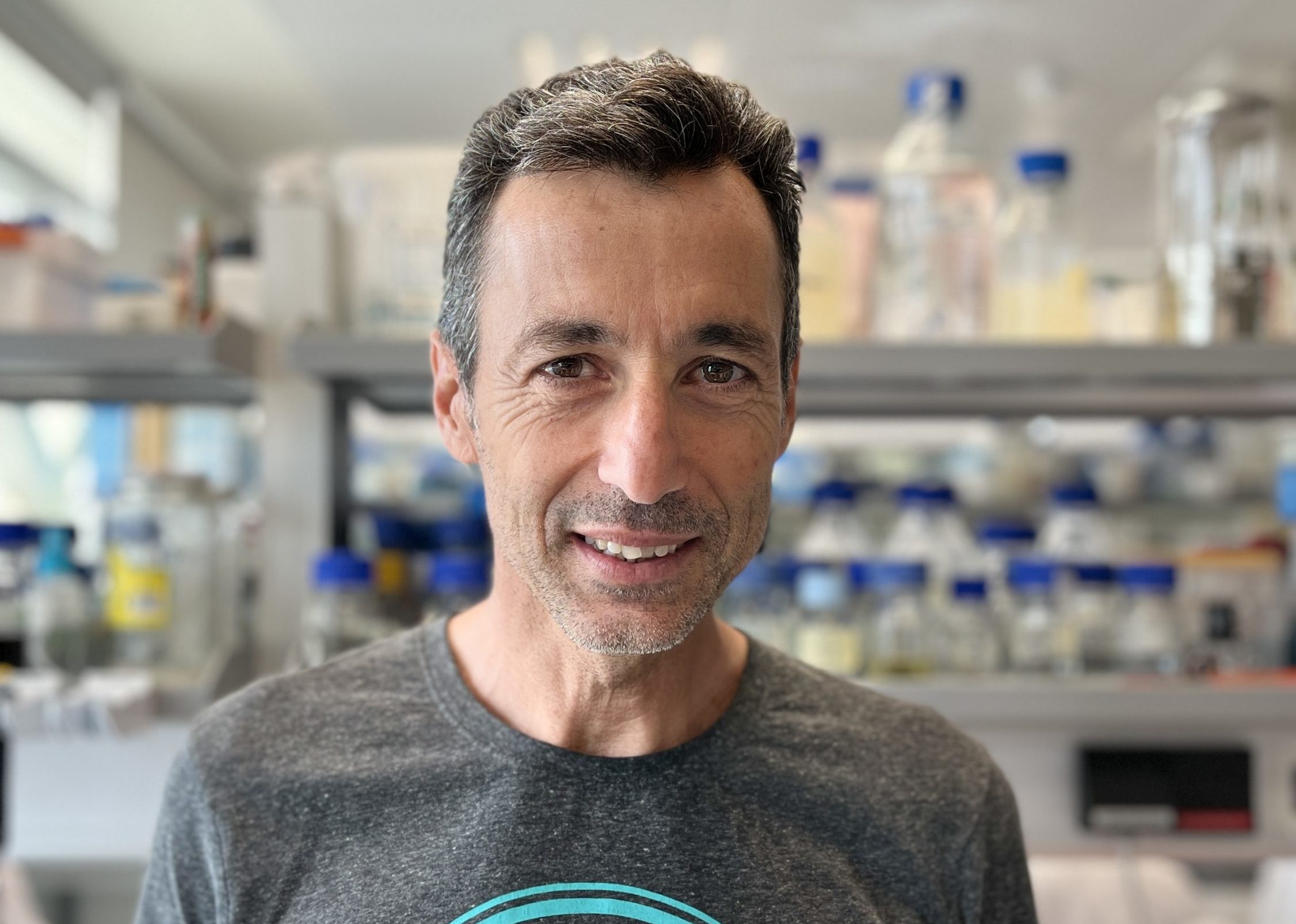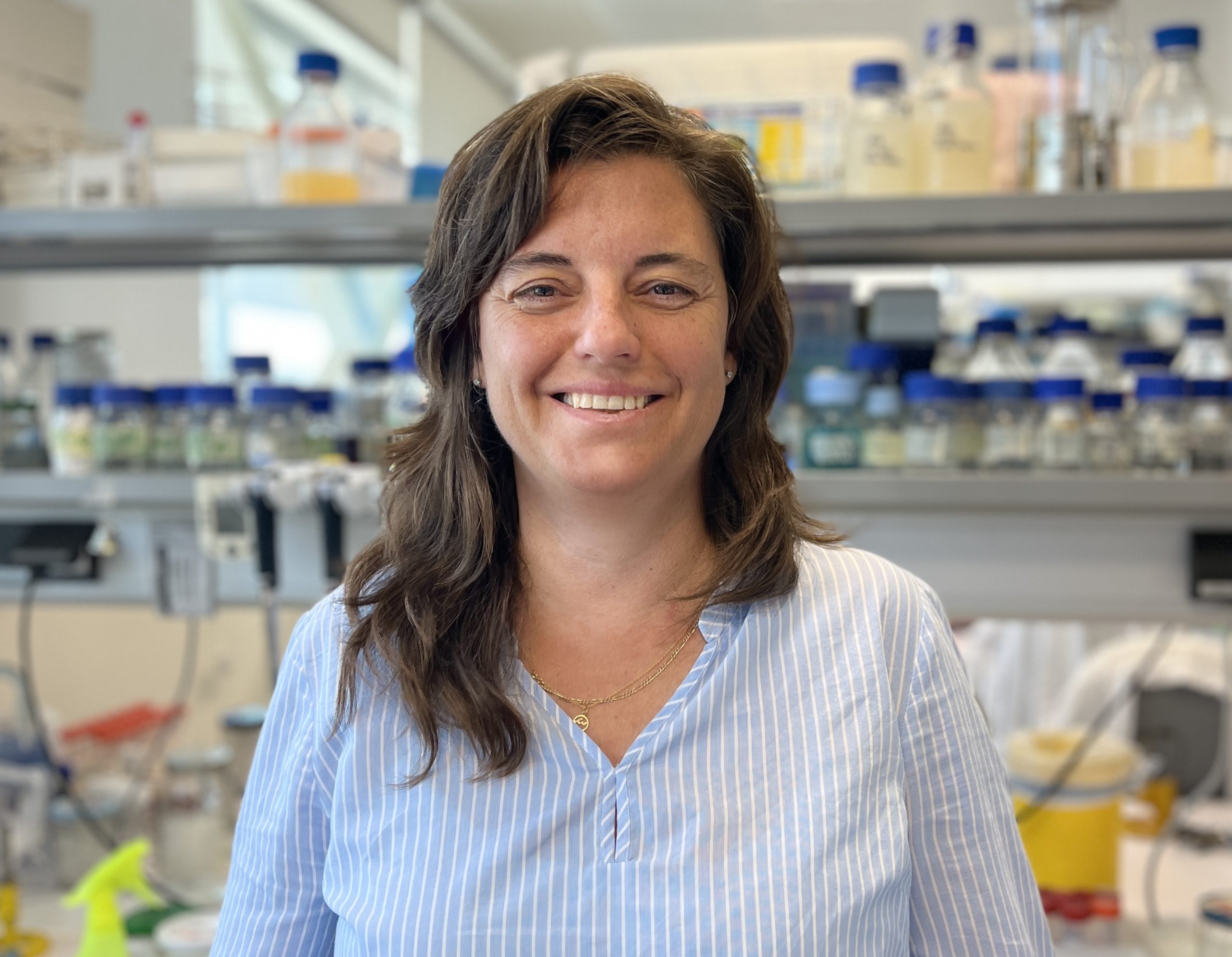Full Professor in Genetics
I obtained a degree in Biological Sciences from the University of Córdoba (1982) and a PhD in Biology from the University of Seville after completing my doctoral thesis, in the Department of Genetics, entitled “The regulation of the biosynthesis of carotenoids in filamentous fungi”. From 1989 to 1993 I got a post-doctoral position in the Biotechnology Department of the Imperial College of London where I worked in geminivirus molecular genetics. At the end of 1993 I joined the Molecular Yeast Genetics group at the Genetics Area of the University of Málaga (UMA). In 1997 I initiated my research in plant viruses with a project to generate resistance against the viruses that cause the tomato yellow leaf curl disease (TYLCD). Currently, I am a full professor in genetics at the UMA and the Director of the Institute for Subtropical and Mediterranean Horticulture “La Mayora” (IHSM), an institute jointly run by the UMA and the Consejo Superior de Investigaciones Científicas (CSIC). The main lines of my research are the study of the role of post-translational modifications in virus infection, the suppression mechanisms in response to jasmonates in the transmission of the geminivirus and the mechanisms for suppressing virus mediated gene silencing.
Research Professor
Tenured Scientist
In 2003 I obtained my PhD degree in Plant Pathology from the University of Córdoba (Spain), and subsequently, in 2007, I completed my postdoctoral training in Plant Molecular Virology at the University of California, Riverside (EUA). From 2007 to 2010, I enjoyed a postdoctoral contract at the Institute for of Subtropical and Mediterranean Horticulture “La Mayora” (IHSM), CSIC-UMA (Málaga, Spain), within the grant program Ayudas Juan de la Cierva Incorporacion. Since 2010, I am a tenured scientist at the IHSM “La Mayora”(CSIC-UMA).
My research focuses on understanding the complex interactions between plant viruses (in the context of single and mixed infections), host plants and insect vectors, and how these interactions result in virus transmission and diseases. Currently, I use as a model system two viruses, Tomato yellow leaf curl virus (TYLCV, genus Begomovirus, family Geminiviridae) and Tomato chlorosis virus (ToCV, genus Crinivirus, family Closteroviridae), the whitefly Bemisia tabaci (Hemiptera: Aleyrodidae) and the tomato (Solanum lycopersicum L.).
Senior lecturer in Genetics
I obtained my degree in Biological Sciences (BSc. and MSc.) from the University of Malaga (UMA) in 1997. I did my PhD at the Genetics Department of the School of Sciences (UMA), working with the viral proteins responsible for the DNA replication (Rep and REn) of geminiviruses. After that, I started a post-doctoral period in two laboratories in the United Kingdom working in yeasts epigenetics: Dr. Alain Verreault´s group at Clare Hall Laboratories, Cancer Research UK (London), and Dr. Robin Allshire´s laboratory at the Wellcome Trust Centre for Cell Biology in Edinburgh. In 2008, I returned to the UMA (Genetics Department) and since then, I have been both teaching and doing research. I completed two short scientific stays (three months each) in Dr. Robin Allshire´s lab in 2008 and 2011. I teach genetics in the degrees of Biology and Biochemistry, and epigenetics in the master “Advanced Biotechnology”. I am now a Senior Lecturer and a member of the Plant-Microorganism-Vector Interaction Group at the Institute for Subtropical and Mediterranean Horticulture “La Mayora”, which is jointly run by the UMA and the Consejo Superior de Investigaciones Científicas – CSIC (IHSM, UMA-CSIC). Nowadays, my research line focuses in characterizing the geminivirus-plant-vector interaction at both, a genetic and an epigenetic level.
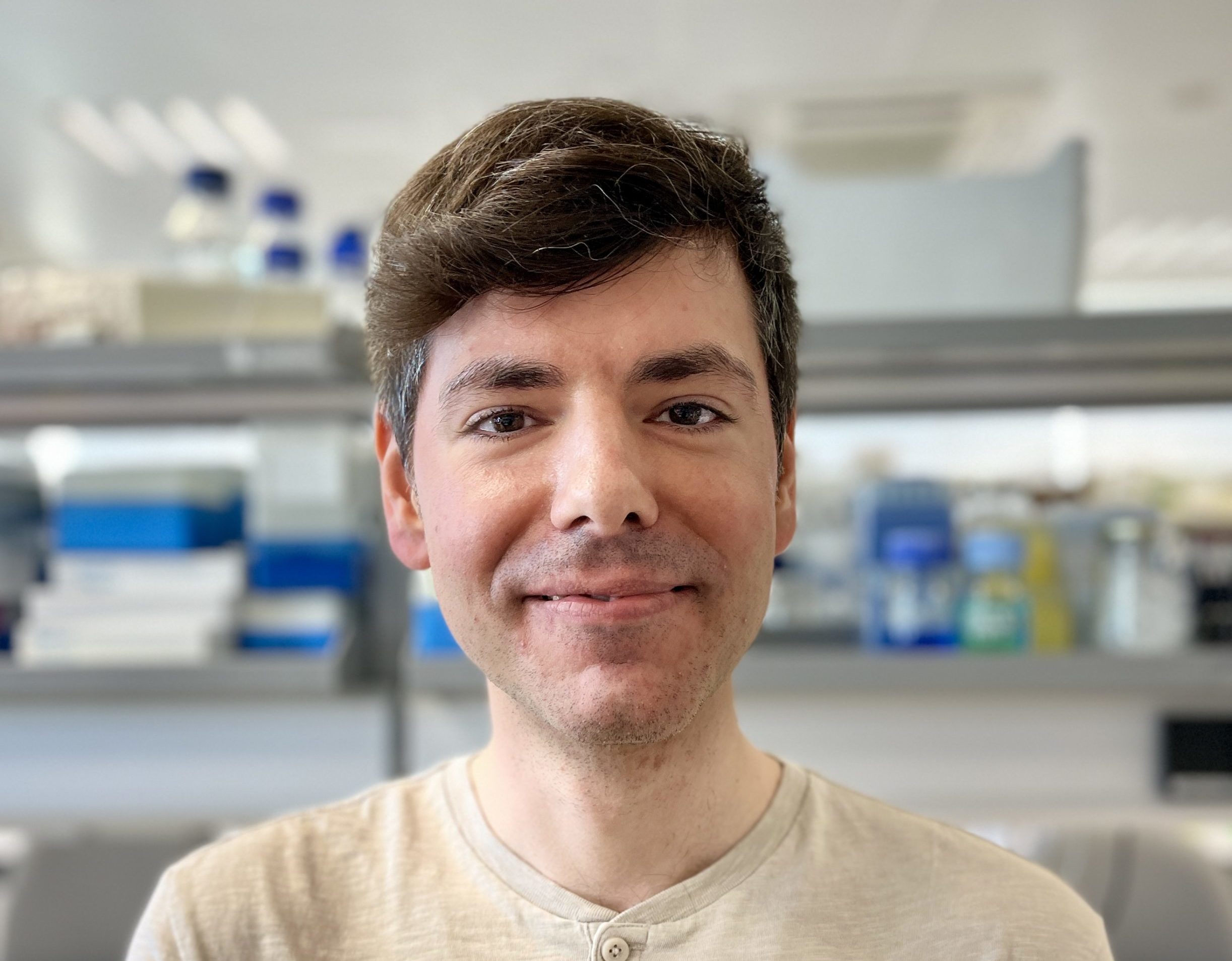
Emmanuel Aguilar Parras
Ramon y Cajal Researcher
I studied Biotechnology at the University of Salamanca (2011), and obtained a Master degree in Biochemistry, Molecular Biology and Biomedicine at Complutense University of Madrid (2012). My Master´s thesis analyzed the mechanisms that regulate systemic necrosis in compatible plant-virus interactions, a study that I performed under the supervision of Dr. Francisco Tenllado (Center for Biological Research, CIB-CSIC, Madrid). Shortly after, I was awarded a FPU fellowship that allowed me to continue with my PhD in the same laboratory at CIB-CSIC (2013-2017), analyzing the role played by certain viral suppressors of RNA silencing (VSRs) as key pathogenicity determinants, involved in viral interactions such as synergism, and responsible for the induction of unfolded protein responses (UPR) leading to necrosis. I also studied the effect of climate change in the outcome of plant viral diseases and, in collaborative works, assessed the trade-offs stablished in plant-virus interactions under drought, leading to increased plant tolerance to this abiotic stress. When I finished my PhD, I moved to Shanghai and joined Rosa Lozano-Duran´s lab, the GeminiTeam, (Shanghai Center for Plant Stress Biology, Chinese Academy of Sciences, PSC-CAS), as a postdoctoral researcher, to better understand molecular plant-geminivirus interactions. In 2020, with Rosa Lozano-Duran (PSC-CAS) and Eduardo Rodríguez Bejarano (IHSM-UMA-CSIC) as supervisors, I received a Marie Skłodowska-Curie fellowship with the research project called “GeminiDECODER”, whose purpose is to isolate mobile small RNAs in plants. In 2022, I joined the IHSM, to continue with the GeminiDECODER project, paying special attention to the isolation of mobile RNAs associated with plant defence responses in the model pathosystem TYLCV-tomato.

Isa Fortes
Postdoctoral fellow
In 2002 I graduated with a degree in Biology from the University of Málaga (Spain). In 2005 I started an FPI grant in the Plant Virology Department of the Institute for Subtropical and Mediterranean Horticulture “La Mayora” under the supervision of Professor Jesús Navas Castillo. I studied the tomato plant’s viruses transmitted by whitefly, Tomato chlorosis virus, in its different aspects: epidemiologic, pathologic, in its genetic diversity, and also focused on the development of efficient systems of plant infection using cloned versions of viral genomes. In 2010, I continued working in Jesús Navas Castillo’s group as a postdoctoral researcher.
After 2014, I moved to Professor Enrique Moriones Alonso’s group, at the same department in the IHSM. Ever since then I am mainly interested in the study of plant viruses transmitted by whitefly that affect tomato and cucurbits crops in Spain, epidemiologically speaking, in its genetic diversity and in understanding the basis of plant-virus interactions. Another objective we are aiming at is to search for resistance sources to the virus.

Tábata Rosas Díaz
Assistant Professor
In 2002 I graduated with a degree in Biology from the National University of San Marcos – UNMSM (Peru). Short after that I completed a Master’s in Biotechnology and Plant Engineering at CINVESTAV, Mexico (2002) where I applied the use of geminivirus as vectors for gene-silencing. Then, I moved into Spain in order to do a Master in Advanced Biotechnology at the University of Málaga (UMA). In 2009, I started my PhD project under the supervision of Dr. Eduardo R. Bejarano and Dr. Rosa Lozano-Durán. For my doctoral thesis I explored several aspects of the plant-geminivirus interactome, including unravelling the roles of jasmonate signaling and of the retrograde trafficking during geminivirus infection. In 2015, as a postdoctoral researcher, I moved to Dra. Rosa Lozano-Durán´s laboratory at the Shanghai Center for Plant Stress Biology (Shanghai, China). Our research focused on the molecular characterization of the role played by a plant receptor-like kinase BARELY ANY MERISTEM 1, BAM1 in the cell-to-cell spread of RNAi by plasmodesmata and how the C4 protein from the geminivirus TYLCV, manipulates this signal movement in plants. In 2019, I joined the Institute for Subtropical and Mediterranean Horticulture “La Mayora”, (IHSM, UMA-CSIC) with a Juan de La Cierva postdoctoral grant. Since December 2021 I am an emerging researcher as a principal investigator, funded by FEDER program at UMA, striving to accomplish a project focused in unravelling the molecular mechanisms of DNA perception as an elicitor of the immune response in plants. Finally, I also participate in other research projects in order to increase the knowledge basis of plant-geminivirus interactions.
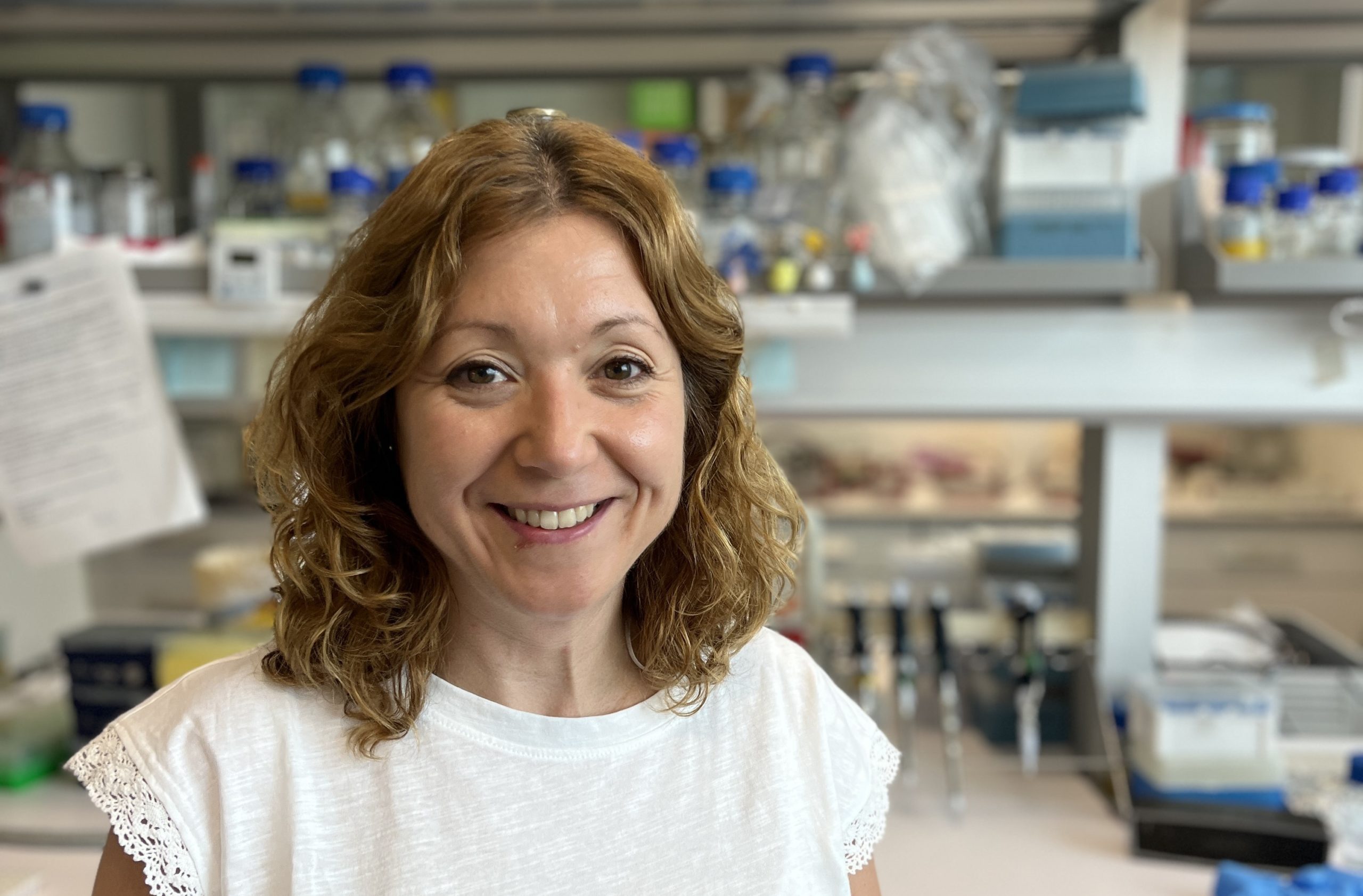
María José Rodriguez López
Postdoctoral fellow
I got my bachelor´s degree in Biology at the University of Málaga (UMA) in 2003. Then, I obtained my master’s degree in Molecular and Cellular Biology in 2005 at UMA. Then, I was awarded with a FPI fellowship to develop my Ph.D. at the Institute for Subtropical and Mediterranean Horticulture “La Mayora” (UMA-CSIC) under the supervision of Dr. Rafael Fernández Muñoz and Prof. Enrique Moriones. My Ph.D. focused on elucidating the resistance mechanisms of tomato to the whitefly insect-vector and its effects on virus diseases control. After that, I enjoyed my first postdoc at the Department of Plant Ecology and Phytochemistry at the Institute of Biology (Leiden University) in the lab of Dr. Kirsten Leiss, where I studied the resistance of tomato to thrips as an important part of natural crop protection.
In 2015, I moved to Pamplona, into the private sector, to work as research assistant in a R&D project that was focused on the development of new approaches for crop yield improvement. Since 2022, I am enjoying a second postdoctoral period at the IHSM “La Mayora” to study the tomato resistance to whitefly-transmitted viruses to improve diseases control under the supervision of Prof. Enrique Moriones
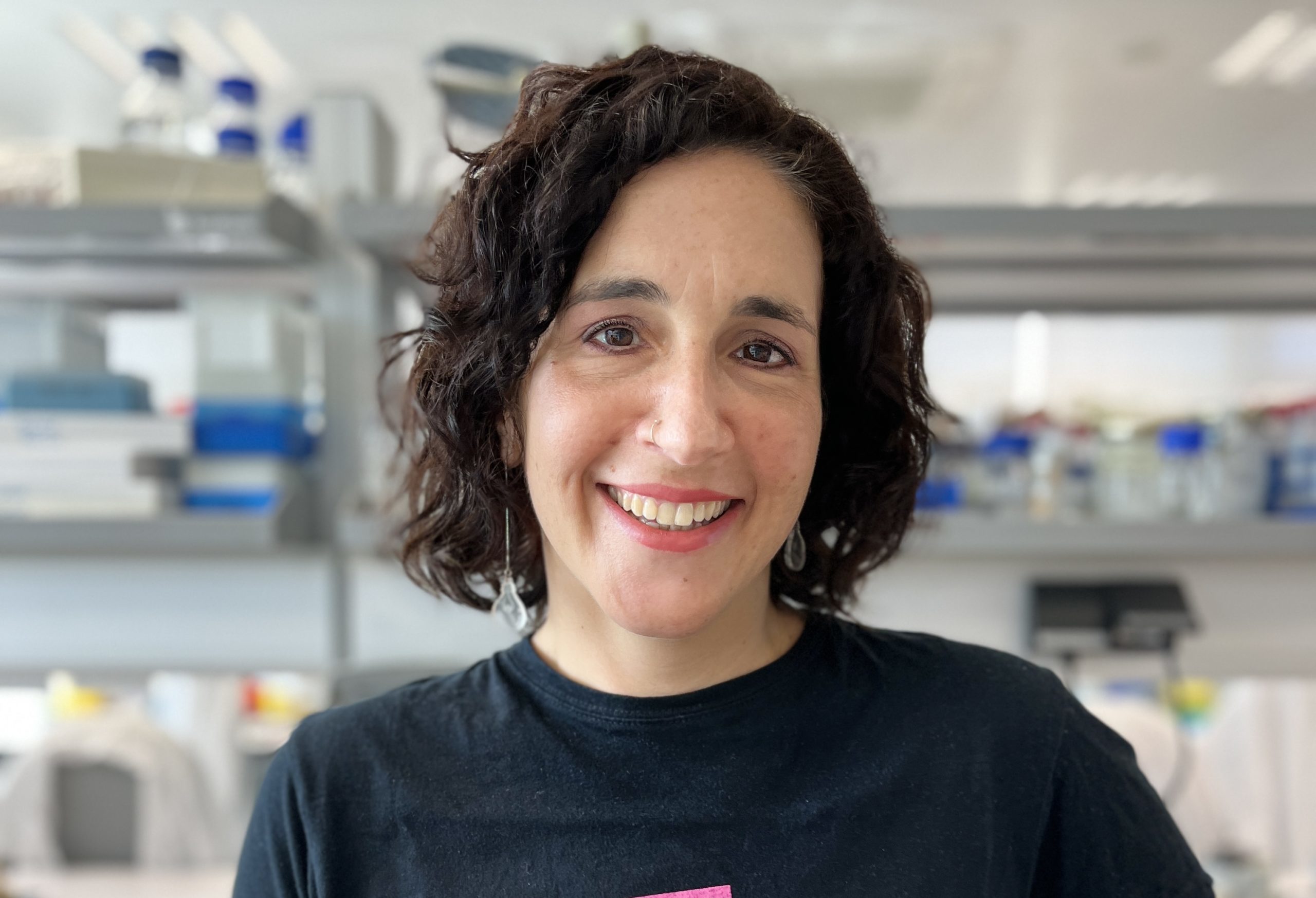
Ana P. Luna
Assistant Professor
In 2003 I graduated as a biologist from the University of Málaga (Spain), and subsequently, in this same University, under Prof. Eduardo Bejarano’s supervision, I did my PhD working on the identification and characterization of the silencing suppression activity of geminiviral proteins from begomoviruses that cause Tomato yellow leaf curl disease (TYLCD). As part of my studies, I did a PhD-short stay of nine months in the group of Dr. Olivier Voinnet, at the Institut de Biologie Moleculaire des Plantes – IMBP (Strasbourg, France), where I had the chance to work with small RNAs and study their function in plants defence against viruses. After completing my PhD thesis, I was offered the chance to continue working with geminivirus as a postdoctoral researcher at the Institute of Subtropical and Mediterranean Horticulture “La Mayora” (IHSM, UMA-CSIC). Currently, I am still conducting this research and teaching genetics in the University of Málaga.
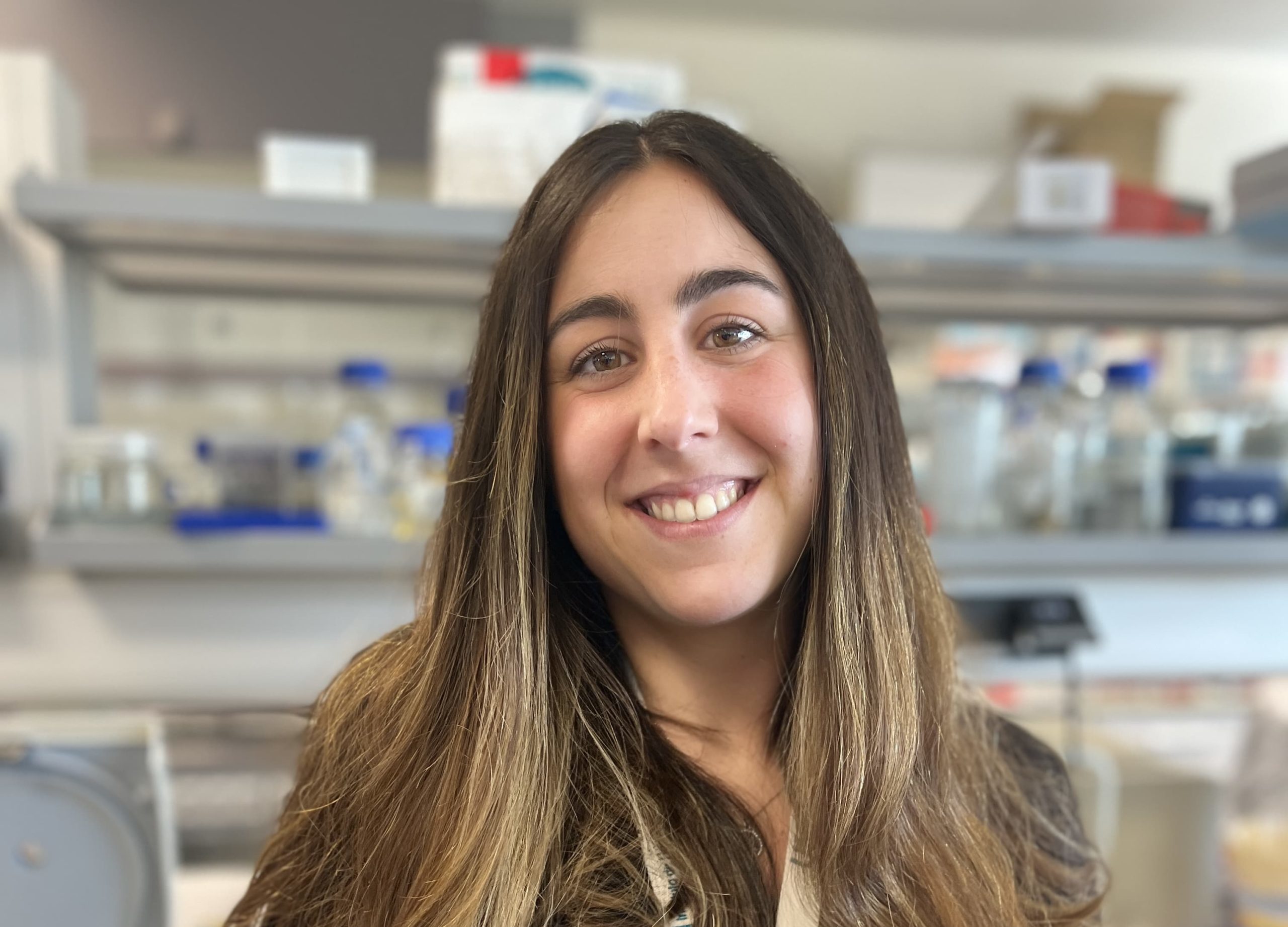
Verónica Pérez Rubio
PhD Student
I graduated as a Biologist from the University of Granada (Spain). In 2018 I completed a Master´s degree in Genetics and Evolution, which was imparted by the University of Granada and the University of Almería. After that, I did an Internship in the Phytopathology Laboratory of the company Rijk Zwaan Ibérica, S.A, (Almeria, Spain) and I continued working there for two more years. During this time, I was able to expand my knowledge on plant viruses, which made me particularly interested in this area and I decided to focus my PhD studies on plant-virus interaction. In august 2021, I started my PhD in the Plant-Microorganism-Insect Department at the Institute of Subtropical and Mediterranean Horticulture, “La Mayora” (IHSM, UMA-CSIC).
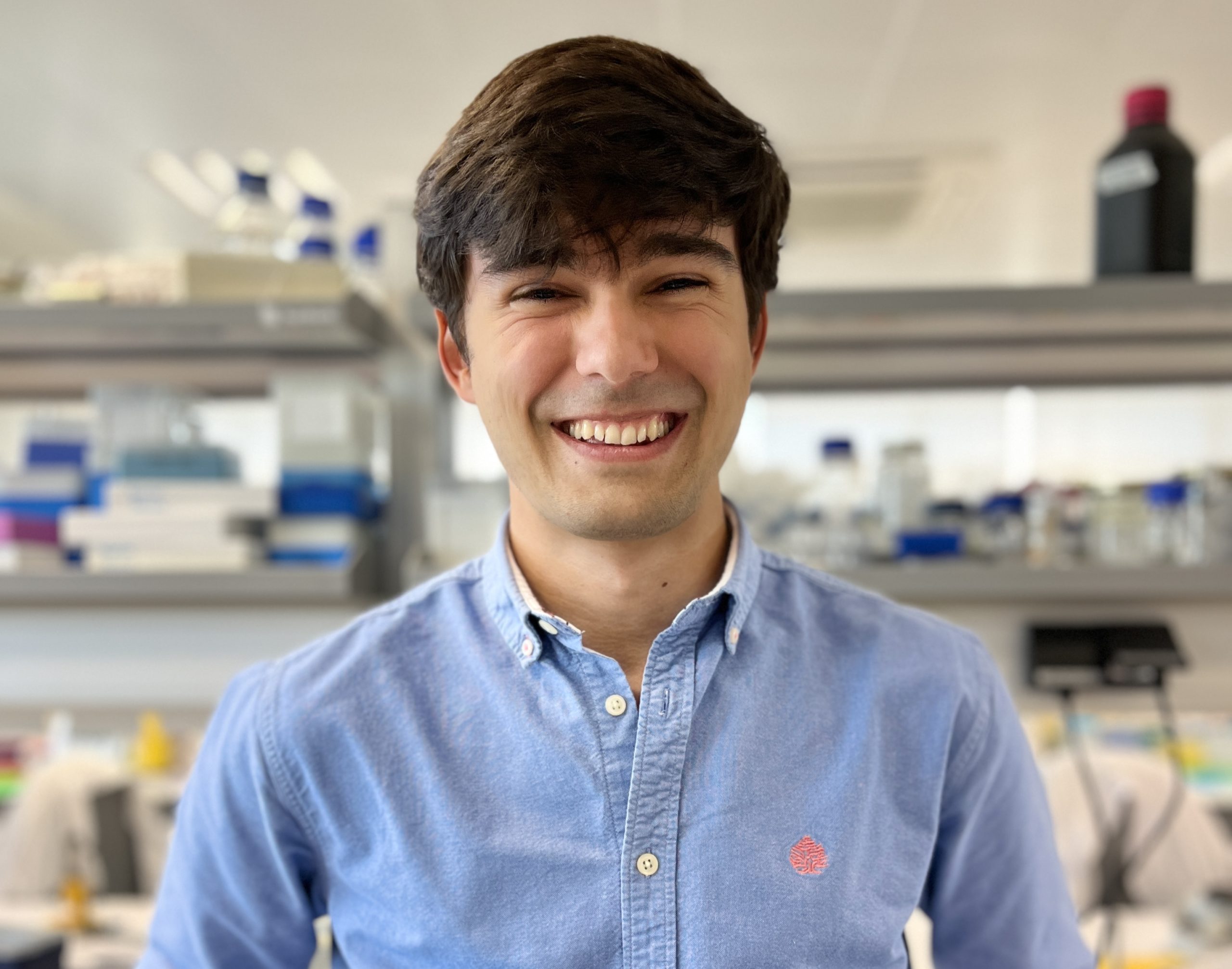
Pablo Morales Martínez
PhD Student
I graduated in Biochemistry at the University of Malaga (Spain) after a specialized training in Applied Molecular Biochemistry, with a great insight in Genetics, Virology and Molecular Plant Biology. I was awarded an Extraordinary Prize for Graduate Students (University of Malaga, 2020). Previously, in 2018, and thanks to “Gemini Team IHSM” teammates for that, I had done an internship as an undergraduate student at the Institute of Subtropical and Mediterranean Horticulture – IHSM, “La Mayora” (UMA-CSIC, Málaga, Spain). In my bachelor’s degree final project, also conducted at the IHSM, I analysed the potential role of some geminiviral proteins in somatic homologous recombination in Arabidopsis thaliana, and how their expression could enhance the host recombination rate. In 2021, I did a master in Advanced Biotechnology at the University of Malaga, aiming to further develop my studies on how plant viruses hijack cellular and molecular host machinery. In 2021, I obtained a FPU fellowship, which allowed me to join the so-called “Gemini Team IHSM” as a PhD student at the IHSM. Currently, I am focusing on the dissection and unravelling of the molecular mechanisms underlying geminiviral movement within and between plant cells, and especially how geminiviruses are related to vesicle trafficking system.
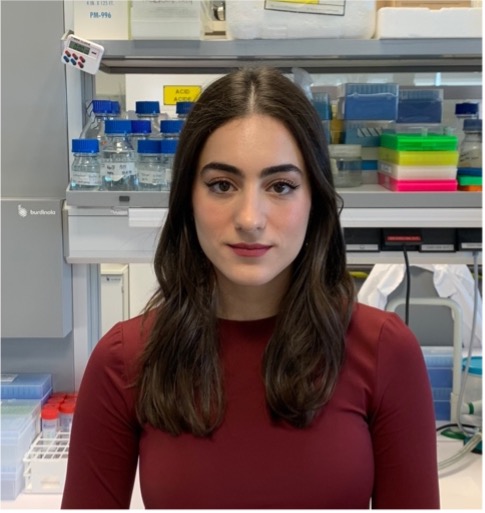
Marta A. Rey
PhD Student
I graduated with a degree in Biochemistry from the University of Malaga (Spain) in 2022. During my studies, I participated in a one-year Erasmus exchange program at Ludwig Maximilian University (LMU) of Munich, which sparked my interest in genetics and molecular biology. For my bachelor’s degree final project, I worked with the GeminiTeamIHSM, where I delved into the fascinating world of geminiviruses and their interactions with plants, with a particular focus on plant immunity. In 2023, I completed a Master in Advanced Biotechnology at the University of Malaga, aiming to deepen my knowledge of plant-virus interactions. In 2024, I was awarded an FPI fellowship to pursue a PhD with the GeminiTeamIHSM at the Institute of Subtropical and Mediterranean Horticulture – IHSM, «La Mayora» (UMA-CSIC, Málaga, Spain).
FORMER MEMBERS
Lidia Blanco Sánchez. 2023
Beatriz Romero Rodriguez. 2023
Blanca Sabarit Peñalosa. 2023
Miguel Angel Corrales. 2022
José Cana Quijada. 2021
Diego López Márquez. 2020
Álvaro Piedra Aguilera. 2019
Carmen Cañizares Nolasco. 2017
Mónica Yazmín Landeo Ríos. 2016
Elena García Cano. 2016
Manuel Arroyo Mateos. 2015
Edgar Rodríguez Negrete. 2014
Pedro Humberto Castro. 2013
Rocío Escobar. 2013
María José Rodríguez López. 2013
Zaira Caracuel. 2012
Diego Tomás García. 2011
Rosa Lozano Durán. 2011
Carlos Martín Guevara. 2010







